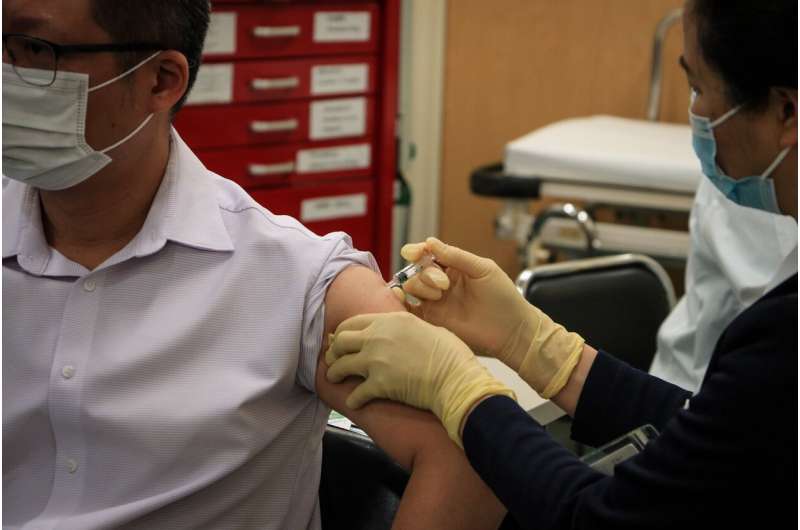Side effects mean your COVID-19 vaccine is working. But what if you don't have a reaction?

As millions now know from personal experience, the COVID-19 vaccines can cause temporary side effects. It's a good sign, as it suggests your immune system is paying attention, preparing you in case of infection with the coronavirus.
But if you don't experience side effects, does that mean the vaccine did not work?
Good news: The short answer is no, infectious-disease experts say. There is no evidence that a lack of side effects means the vaccinated person is unprotected against COVID-19.
The details require a bit of explanation, but the main reason physicians feel comfortable making that statement is simply math.
In the clinical trials, less than half of vaccine recipients reported moderate or severe episodes of "systemic" side effects such as fever, headache, and fatigue. Yet the drugs prevented most cases of disease, according to those studies. So by the process of elimination, some of that disease prevention must have occurred in the people with mild or no side effects.
We contacted three experts who endorsed that line of reasoning: Paul Offit, director of the Vaccine Education Center at Children's Hospital of Philadelphia; Glenn Rall, a Fox Chase Cancer Center immunologist; and Sarah Coles, a family physician and assistant professor at the University of Arizona College of Medicine.
Coles also wrote a blog post about the topic for Dear Pandemic, a group of women physicians and scientists who have been providing plain-language COVID-19 guidance to the public since the spring of 2020.
"The vaccines still work even if you don't have side effects," she said. "While many have side effects, many do not."
Offit said he was unaware of formal studies as to whether the side effects are associated with vaccine effectiveness, but he agreed that a lack of fever or headache is no cause for concern.
"You certainly don't need to develop side effects to be protected," he said.
To put it another way, both phenomena—acquiring immunity and experiencing side effects—are set in motion by the same series of inflammatory warning signals in the immune system once you get injected.
But just because this initial inflammation is successful in triggering the production of antibodies and other defenses against disease, it does not necessarily cause a fever in the bargain. There is not a strong correlation between the two things, said Coles, who chairs a commission on public health and science for the American Academy of Family Physicians.
And most other modern vaccines cause few, if any, side effects, yet they work well, said Rall, coauthor of Principles of Virology, a standard text in the field.
"We normally don't see appreciable side effects following vaccination," he said. (Among the exceptions, besides the vaccines for COVID-19, are those that protect against shingles.)
Whether people experience side effects might be determined by other factors besides their immune systems, including fatigue, stress, and how they perceive pain, Coles said.
The rates of various side effects are slightly different in each of the COVID-19 vaccines, and in those that require two doses, they tend to be more common after the second dose.
With the vaccine made by Pfizer Inc. and BioNTech SE, for example, 3.7% of trial participants aged 18 to 55 reported a fever after the first dose, and 15.8% reported a fever after the second dose—usually no higher than 102 degrees. Half of recipients reported a headache after the second dose, but most were moderate or mild.
All of these impacts are transient, generally lasting a day or two. And in rare cases of a serious allergic reaction called anaphylaxis within minutes after injection, physicians can readily treat that with an EpiPen or similar device containing epinephrine.
A final note: Offit, Rall, and Coles were talking about systemic side effects, not "local" effects such as arm pain or redness at the injection site. Those inconveniences do seem to strike most recipients of the vaccines.
But given the alternative—a case of COVID-19—it's worth it.
©2021 The Philadelphia Inquirer, LLC.
Distributed by Tribune Content Agency, LLC.



















